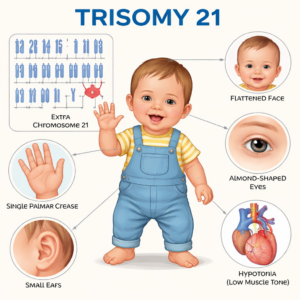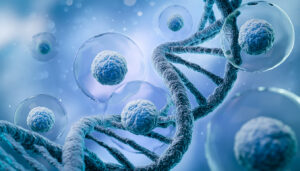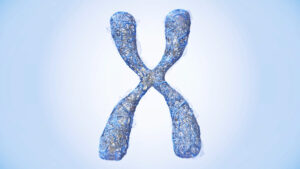What is Turner syndrome?
Turner syndrome is a rare genetic syndrome that occurs in girls. Some girls with the syndrome have a missing X chromosome on their 23rd pair of chromosomes. This is usually caused by an error that occurs during the formation of the egg or sperm. In other individuals with the syndrome, it is caused by a missing part of the X chromosome in some of the cells of the X chromosome.
Common symptoms and features of the condition include a webbed neck, a short stature (height), feeding issues in infancy, skeletal problems, and other issues affecting the face, chest, skin, and chest.
Why is it sometimes misdiagnosed?
- As a multi-system disorder, the syndrome can affect multiple parts of the body, from the face to the skeleton to the cardiac system. The presence of many different symptoms can make it difficult to pinpoint the ones specific to Turner syndrome and often lead to the diagnosis of other conditions or syndromes before identifying Turner syndrome.
- As a spectrum disorder, affected individuals present with varying degrees of symptoms ranging from mild to severe and every level in between. Individuals with milder symptoms may end up being diagnosed later than someone with more severe symptoms. Symptoms may also present at different ages depending on the girl affected.
- Turner syndrome is not one of the rarest diseases. As a chromosomal disease affecting girls, it is one of the most common in this category. However, it is a rare disease, affecting just 1 in every 2,000 live births approximately. Rare diseases as a whole are often misdiagnosed due to a lack of understanding on the part of parents, caregivers, and medical professionals.
How do we improve the diagnosis of Turner syndrome?
Advances in prenatal genetic testing are making misdiagnosis of Turner syndrome less common.
After birth, fast and accurate genetic analysis, followed by both genetic counseling and genetic testing can also ensure a correct and swift diagnosis of the condition and reduce Turner syndrome misdiagnosis rates.
We must continue improving the awareness of rare diseases in general while also increasing and extending support for families facing a rare disease diagnosis. The more we know about rare genetic syndromes, including their causes and symptoms, the more we can reduce the rate of misdiagnosis and ensure everyone who needs one gets a timely and accurate diagnosis.



